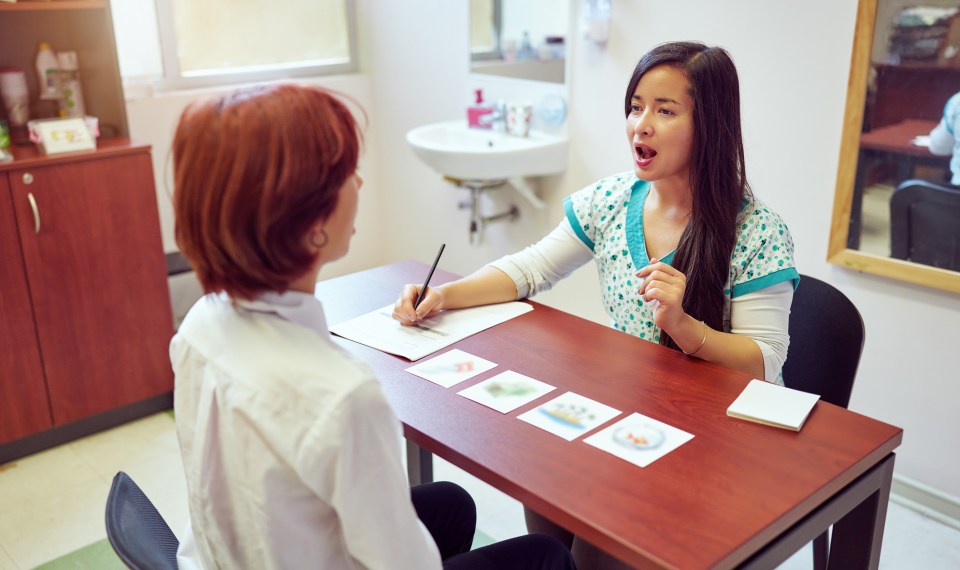Aphasia is a condition caused by damage to the part of the brain responsible for language. It can affect your speech, the way you write or read and your ability to understand spoken or written language.
Often, aphasia occurs suddenly following a stroke or head injury, but it can also develop over time due to a growing brain tumor or a progressive disease such as dementia or Alzheimer’s. It can be difficult to talk to someone with aphasia, but there are techniques that can help you communicate with individuals with this condition.
Types of Aphasia
There are many different types of aphasia, but they can be broken into two main categories:
- Fluent aphasia: Also known as Wernicke’s aphasia, it impacts the ability to read or write and understand the meaning of spoken words. Someone with fluent aphasia may string many words together in a random pattern that makes no sense. They are typically unaware of their speech mistakes and may become frustrated when others fail to understand then.
- Nonfluent aphasia: Someone with nonfluent aphasia must work very hard to produce words or even sounds. While the person may know what they want to say, their speech can be halting, and they may struggle to find the right words. Often, they are limited to single words or very short sentences. They may also have difficulty writing but are often able to read and understand speech.
Treating Aphasia
Aphasia can improve spontaneously in the first several months following a stroke or brain injury. During this time, recovery may be rapid. After initial recovery, there may be continued improvement, but at a much slower pace. As the brain heals, there are therapies that can enhance recovery.
Aphasia treatment options include:
- Speech-language therapy. There are multiple techniques and treatment options based on the type and severity of aphasia. A collaborative approach is recommended including the person with aphasia along with family, caregivers and others in their network.
- Nonverbal aids. There are several assistive technologies such as smartphones, computers, apps and assistive devices that can help with recovery.
- Group therapy. This offers a way for those with aphasia to develop communication skills and practice skills in a non-threatening, fun environment. It also provides much needed social interaction.
How to Talk with Someone with Aphasia
Communication can be frustrating for both the person who has aphasia and those trying to talk with them. Tips for better communication include:
- Don’t limit communication to speech alone. Encourage hand gestures, drawings, pointing and other forms of non-verbal communication.
- Don’t rush. Allow plenty of time for the person with aphasia to speak or express themself.
- Don’t correct their speech.
- Introduce conversation topics before diving into conversation.
- Reduce distractions. Turn off the TV or other noise or move to a quiet area.
- Use adult language. Be careful not to speak down to the person or treat them like a child.
- Don’t shout. Use a normal speaking voice.
- Repeat words as needed.
- Write it down. It may be helpful to put the words on paper as well as saying them aloud.
- Be concise. Use short, simple sentences and speak clearly.
- Be inclusive. Don’t exclude the person with aphasia from conversations. Speak directly to them.
- Offer choices for possible answers.
- Use yes and no questions to confirm understanding.
Living with Aphasia
It is important to remember that aphasia does not impact a person’s intelligence, just their ability to communicate. Those who suffer from the condition have thoughts, opinions and ideas, but are unable to clearly verbalize them.
Recovery from aphasia is a lifelong process; one survey found that more than 90 percent of people with aphasia feel isolated. Maintaining strong relationships is vital to emotional wellbeing. Friendship may be the best therapy of all for a person living with aphasia.
The content of this site is for informational purposes only and should not be taken as professional medical advice. Always seek the advice of your physician or other qualified healthcare provider with any questions you may have regarding any medical conditions or treatments.



